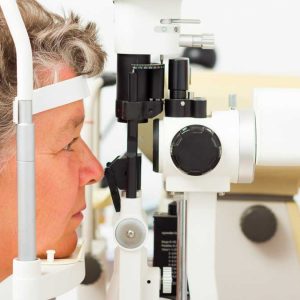Which is worse, glaucoma or cataracts?
Are you worried about vision loss? Not sure what the future may hold? Cataracts and glaucoma are common causes of vision loss, and you can control both with routine eye appointments. Let’s compare both conditions to understand the differences and side effects.

What is glaucoma?
Glaucoma is a condition that affects the optic nerve. It is mainly linked to genetics, but it can also result from trauma or certain eye conditions. Glaucoma is most common in older adults, and it is a leading cause of blindness/vision loss in adults over 60.
The effects of glaucoma cannot be reversed. Your eye doctor can treat glaucoma to prevent future vision loss, but they cannot repair existing damage. Treatment may include prescription-grade eye drops, oral medication, or optical surgery.
What are cataracts?
Cataracts are a gradual condition that creates a cloudy film over the eye. Early on, you may not experience any vision loss from cataracts. Over time though, you may experience blurry vision, sensitivity to light, double vision, or halos around lights.
Cataracts are primarily the result of aging, but some genetic conditions may increase your risks. Treatments range from corrective lenses to corrective eye surgery, but thankfully the effects of surgery are permanent. The doctor will put an artificial lens in place of your natural eye lens, which eliminates the cloudiness and improves vision.
Which vision condition is worse?
Both glaucoma and cataracts can impact vision, but cataracts are easier to treat. Because the effects of glaucoma are irreversible, this condition may be considered ‘worse’ than cataracts. Nevertheless, neither condition is ideal, and it’s best to treat them at the earliest signs.
Routine eye appointments are key to vision loss prevention
Frequent eye appointments are the best way to detect glaucoma and cataracts early on. The sooner the diagnosis, the more effective the treatment. Older adults who are more at risk of glaucoma or cataracts may need annual eye exams for vision loss prevention. Talk to your optometrist about personalized eye care.
